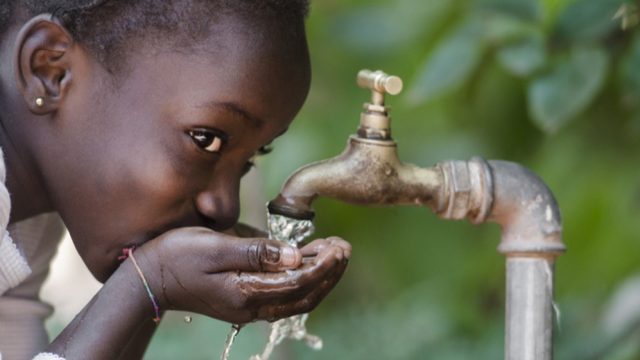Ghana risks missing its 2030 target for universal access to clean water and sanitation due to a massive funding shortfall, according to the latest Ghana WASH Account report.
The country currently spends far below the required $1.5 to $1.7 billion annually to meet its Water, Sanitation, and Hygiene (WASH) goals, leaving a critical funding gap of $500 million each year.
Anita Djandoh, WASH Account Consultant at the Ministry of Sanitation and Water Resources, disclosed these concerns at the 35th Mole WASH Conference in Ho, Volta Region.
Fluctuations in sector funding over recent years have raised red flags, with current spending levels insufficient to achieve the national target of 100% basic WASH access by 2030.
Spending Instability Threatens Progress
The report shows inconsistent funding patterns in the WASH sector, with both increases and decreases in expenditure over time. This instability is putting significant pressure on the country’s ability to meet its commitments under Sustainable Development Goal 6 (SDG 6), which aims to ensure clean water and sanitation for all.
“Without urgent financial intervention, Ghana’s ability to meet its water and sanitation targets by 2030 is seriously at risk,” Djandoh warned during the conference.
Immediate Funding Solutions Required
To address the funding crisis, experts are calling for innovative financing mechanisms and recommend that 80-88% of available resources be allocated to infrastructure development. Djandoh stressed that infrastructure is key to expanding water and sanitation services across the country.
The findings from the WASH Account will be used to advocate for increased investment in the sector, with support from stakeholders such as WaterAid Ghana, World Vision Ghana, UNICEF, and the World Bank.
These organizations have long played a critical role in assisting Ghana’s WASH efforts, but the current funding gap presents an urgent challenge.
Mole WASH Conference: Driving Policy Action
The Mole WASH Conference, organized by the Coalition of NGOs in Water and Sanitation (CONIWAS), continues to serve as a vital forum for reviewing Ghana’s WASH sector performance and shaping policy direction. Supported by media partners like the Ghana Water Journalists Network (GWJN), the conference remains central to pushing for sustainable solutions to the country’s water and sanitation challenges.
As the funding gap widens, the call for bold, innovative financial solutions is growing louder. Without immediate action, Ghana’s vision of universal WASH access by 2030 is at serious risk.
Source: Isaac Kofi Dzokpo/newsghana.com.gh










![Mr Logic signs two dancehall artistes unto his Red Panther record label [Video]](https://ghananewss.com/storage/2023/05/Mr-Logic-signs--100x75.jpeg)







